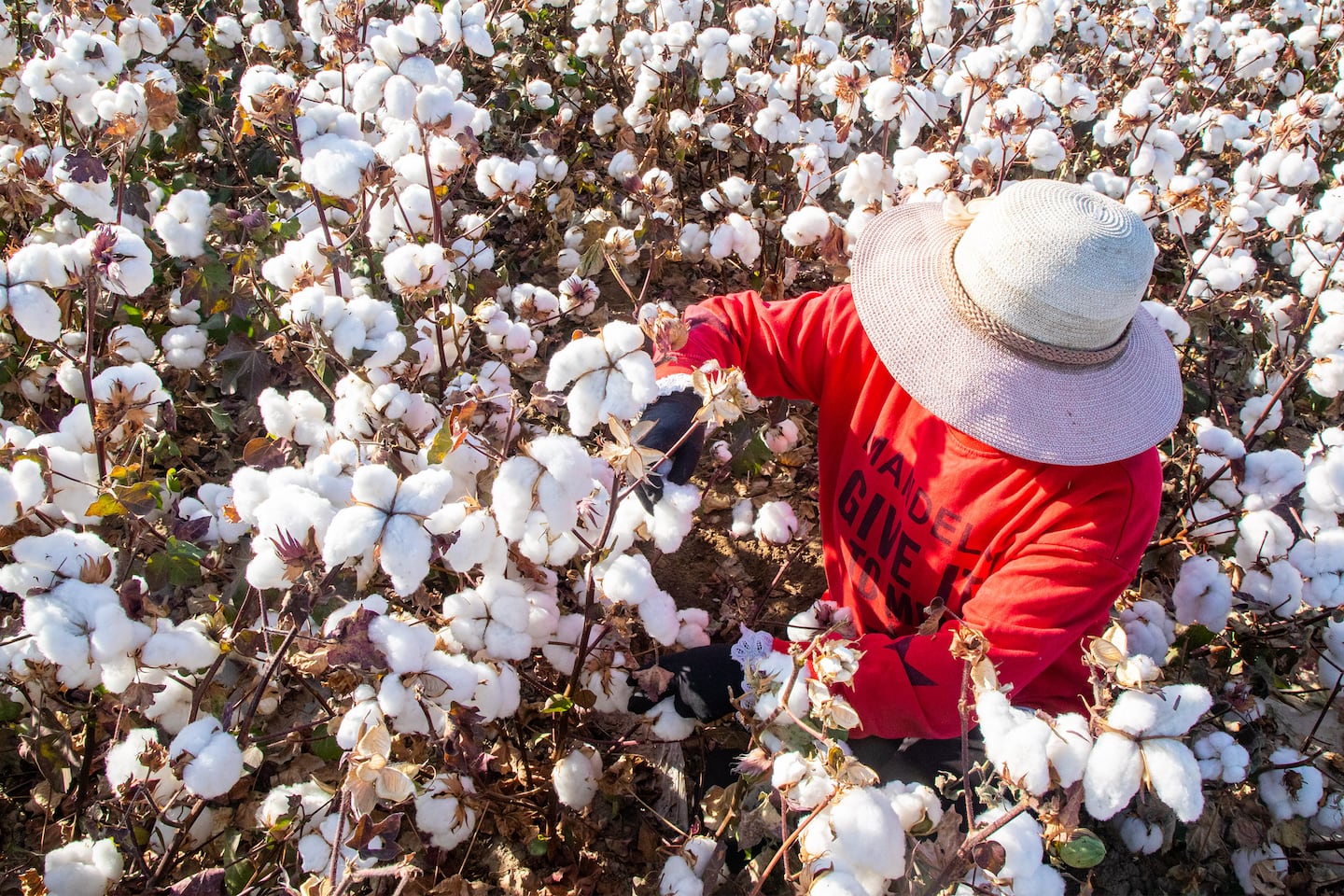
The Business of Fashion
Agenda-setting intelligence, analysis and advice for the global fashion community.

Agenda-setting intelligence, analysis and advice for the global fashion community.

The US will bar entry of all cotton products and tomatoes from China’s Xinjiang region, where it says Beijing is oppressing Muslim-minority Uighurs.
The move is the latest in a string where the US is raising pressure on China over some companies’ alleged ill-treatment of workers. The US says the Chinese government has detained more than 1 million Uighurs and other ethnic and religious minorities in “re-education” internment camps, allegations that the Foreign Ministry in Beijing denies.
“Forced labor is a form of modern slavery,” Acting Department of Homeland Security Deputy Secretary Kenneth Cuccinelli said on a call with reporters Wednesday. “‘Made in China’ doesn’t just indicate country of origin — it’s a warning label.”
The US imported $9 billion of cotton products in the past year and $10 million of tomatoes from China, Brenda Smith, the executive assistant commissioner in the office fo trade at Customs and Border Protection, said on the call.
ADVERTISEMENT
In September, CBP said it planned a so-called withhold release order, or WRO, covering all cotton, textile and tomato products from the country’s northwestern Xinjiang region. CBP has already issued WROs against three Xinjiang-based hair-product and garment producers in 2020 and plans six more in addition to the blanket Xinjiang order.
In December, the US-based Center for Global Policy published a report alleging new evidence from Chinese government documents and media reports of hundreds of thousands of Uighurs in Xinjiang being forced to pick cotton by hand through coercive state-mandated labor.
President-elect Joe Biden has labeled China’s mass detention and re-education program for Xinjiang’s Uighur minority as “genocide” and called for an international effort to make a united stand against the campaign.
By Julia Fanzeres
This week’s round-up of global markets fashion business news also features Korean shopping app Ably, Kenya’s second-hand clothing trade and the EU’s bid to curb forced labour in Chinese cotton.
From Viviano Sue to Soshi Otsuki, a new generation of Tokyo-based designers are preparing to make their international breakthrough.
This week’s round-up of global markets fashion business news also features Latin American mall giants, Nigerian craft entrepreneurs and the mixed picture of China’s luxury market.
Resourceful leaders are turning to creative contingency plans in the face of a national energy crisis, crumbling infrastructure, economic stagnation and social unrest.